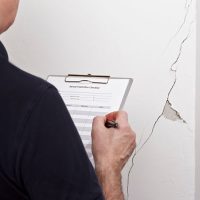How Insurance Adjusters Can Prevent Claims Leakage

Many people who have ever had to file a claim with their insurance company may have felt as though the insurer had been lowballing them and offering very little money for all their damages. However, the opposite is a constant issue in the insurance industry. Surprised? That’s right — insurance companies often have to deal with leakage, which is the overpayment of claims and expenses.
Claims leakage costs approximately $30 billion each year. The problem affects as many as 30% of all claims paid. Leakage is often caused by a long, drawn-out claims process as well as adjuster inexperience. The problem is that mistakes leading to claims leakage are often found too late. By the time an audit has occurred, the claim has closed and there is no way to fix the error at that point.
When an insurance adjuster handles claims inefficiently, it can cost them their license. Many new hires receive little training when starting a new job. They are not properly onboarded before handling claims files. This means that new adjusters may face complex claims too early in their careers, leading to significant errors. But whether the overpayment is the result of human error or fraud, they are preventable.
How to Mitigate Claims Leakage
Insurance companies can follow these tips to help adjusters avoid errors:
- Execute claims management system changes. A robust system that includes information automatically can increase efficient claims handling. These system updates can make the decision process easy for claims managers and adjusters.
- Conduct audits regularly. Companies should file audits on open and closed claims to help uncover leakage. This can help insurance companies detect inconsistencies in the handling of claims. Audits can help uncover fraud or run-of-the-mill errors, while ensuring compliance with industry standards and best practices.
- Invest in analytics and predictive modeling. Advanced analytics and predictive modeling can easily digest large sets of data to identify patterns and trends. Reviewing historical data can predict the likelihood of claim leakage so that insurance companies can implement preventative measures.
- Implement robust internal controls. Regular training on proper work procedures and fraud detection to increase adjuster awareness will be helpful in identifying and preventing claims leakage. Adjusters should be trained on ethical issues as well.
- Collaborate with fraud experts. Fraud investigators and law enforcement officials can be helpful to insurance companies. Using these third parties may seem extreme, but they can assist insurers by providing information and resources to reduce claims leakage.
Keep Your License With Help From a Tampa Insurance Adjusters Licensing Lawyer
Adjusters need to be careful about leakage. If they lack experience, they can lose companies a lot of money, and this can affect their license.
Facing issues with your license? See how a Tampa insurance adjusters licensing lawyer from The Law Offices of David P. Rankin, P.A. can assist you. Schedule a consultation by calling (813) 968-6633 or filling out the online form.
Source:
propertycasualty360.com/2023/08/28/7-ways-to-prevent-claims-leakage/

